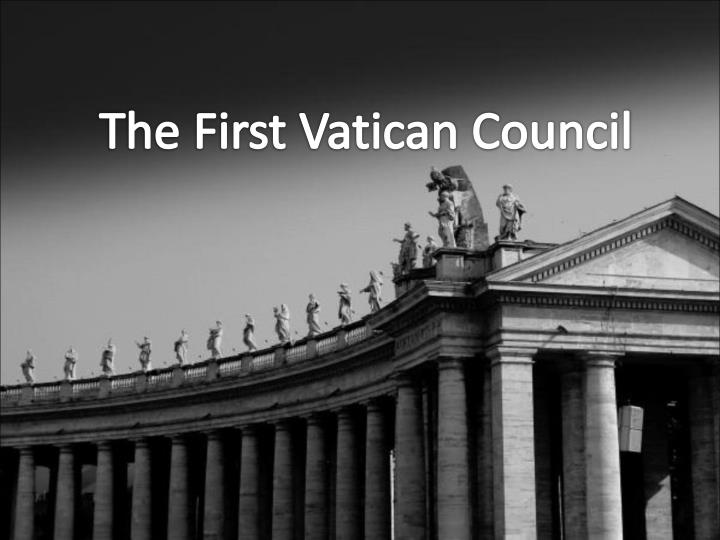
As the 2013 Cyprus bail-in began I frantically searched to see if any such legal system existed in Britain. To my horror I found that December 2012 saw the introduction of the G-SIFI system to be directed today by Canadian governor of the Bank of England Mark Carney.
I then contemplated from what authority could the bankers get the idea that just because they needed cash, that to raid the populations bank accounts was not only a great idea, but morally acceptable.
A document from the Second Vatican Council; The Pastoral Constitution on the Church in the Modern World paragraph 69 has this to say :
“If one is in extreme necessity, he has the right to procure for himself what he needs out of the riches of others.”
This protocol has been pushed and pushed since Vatican II as the Vatican moves to make this a matter of Civil Law as the foundation of every State with which it has a Concordat.
Pope Benedict XVI wrote in an Encyclical section 26 :
“It is true that the pursuit of justice must be a fundamental norm of the State and that the aim of a just social order is to guarantee to each person, according to the principle of subsidiaraty, his share of the communities goods.”[1]
Two things stand out in that quote, first the use of the term ‘person’ and second the term ‘communities’.
Person in legal terms has absolutely no bearing on men, it describes the corporate you or the legal fiction as a mimic of you the natural man/woman. Legal Fictions are always titled, Mr, Mrs etc, the title is the value of the Trust.
The term communities inside the corporate network relates not to the community of citizens as one would expect, the term when used today by the politicos and it would seem by Popes, relates to the ‘Stakeholder Committees’ that run the ‘Stakeholder Communities’ in every town, village and city. The Committee is made up from the biggest employers in any region, it is they controlling all the protocols the taxpayer expects the councils to carry out, and the supermarket representation on these committees always set town centre rents to remove the competition, we get charity shops and coffee shops, pound and second hand goods.
Expanding this theme of rights as a Church principle we find the following insight :
“In Catholic teaching,[post Vatican II] human rights include not only civil and political rights but also economic rights… all people have a right to life, food, clothing and shelter, rest, medical care, education and employment.”
United States Catholic Bishops 1995 Pastoral Letter; Economic Justice for All
This principle will be set against the populations through the civil or legal framework of nation states and gives the corporate realm the power to service those they claim are in need of right, usually themselves, by removing money, property and the possessions of others. This also works in taking from the richer nations to fund the same system in another. This is all to be found in the climate change legislation as the C02 allowed figures have been halved.
This summer is all about sovereignty both here in Britain and across the pond in the US.The so- called ‘free trade agreement’ on this side of the Atlantic is called TTIP, on the other side it is called TPA. We also have the referendum on the continued membership of the EU in Britain, a club that removed all our sovereignty, but let us get back to the free trade agreements and what they mean.
The TTIP and TPA are all about the roll-out of highly restrictive and secret trade treaties which will change our lives forever. These restrictive trade agreements – TTIP in Europe and TPA in the US – are called, in true Orwellian style, ‘free trade agreements’, when in fact they represent totalitarian tyranny. They will be the legislative battering rams which will enable their final grab for the Sovereignty of both our nations from which there will be no return, for this one important reason.
Both treaties give over-riding Sovereignty to corporations, called Investor States. The Investor States will have the right to sue our democratically-elected governments if they don’t play ball with them. Where do these civil agreements, or concordats come from?
Note
[1] Subsidiarity is a principle of social organisation that originated in the Roman Catholic church, and was developed following the First Vatican Council. It has been associated by some with the idea of decentralisation. In its most basic formulation, it holds that social problems should be dealt with at the most immediate (or local) level consistent with their solution. The Oxford English Dictionary defines subsidiarity as the idea that a central authority should have a subsidiary (that is, a supporting, rather than a subordinate) function, performing only those tasks which cannot be performed effectively at a more immediate or local level. The concept is applicable in the fields of government, political science, neuropsychology, cybernetics, management and in military command (Mission Command). In political theory, the principle of subsidiarity is sometimes viewed as an aspect of the concept of federalism, although the two have no necessary connection. The principle of subsidiarity plays an important role in the political rhetoric of the European Union concerning the relationship between the EU governing bodies and the member states. Source
Further Study
Breaking down the bail-in principle
You are an ‘Unsecured Creditor’ to the Banks, Get Ready for Bail-ins
Is cash in the bank a safe option? Bail-Ins begin in Europe
Bank of England demands UK banks find another £27bn by 2020
Restructuring of sovereign debt : UN expert stresses GA principles are binding
Palliative Care, the Inquisitors logic
Finance